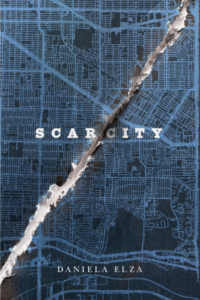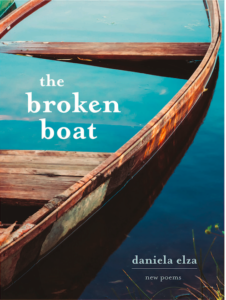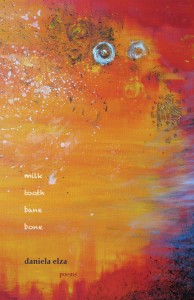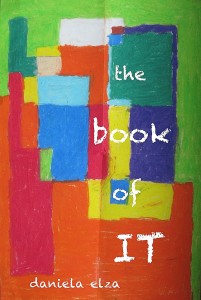what’s war got to with it. . . of PAC and PAW
Posted by Daniela Elza on Mar 27 2007
I have stopped going to my son’s school PAC (Parent Advisory Council) meetings. It feels like a lost cause. I would suggest an idea, and some anxious parent will cut it down with an axe of an argument. Now, that should not perturb me much, because when you believe in something you have to keep at it, do what is necessary to make your point, and turn people’s eyes to what you are seeing.
What it boiled down to, believe it or not, in this case was treats for the bake sale. There are a few bake sales a year hosted by parents to raise money for the teacher’s classrooms, materials, art supplies, etc. That was all very well, until last year when we embraced the healthy living theme. Suddenly, cup cakes with pink icing and sprinkles, Safeway produced confectionary and pastries (that parents sometimes end up bringing due to burnout) became an inconvenient truth.
So we close our eyes to healthy living during bakesales, and dodge kids poignant questions. Here I am in the meeting thinking we could resolve this conflict and be a bit conscientious about our bake sales, and still bring irresistable treats. Unfortunately, for the parent who cut me off that was not a bridge she could cross. She said, “No one will buy them.” A hush descended over the room, and no voice was raised in support of my idea. And yes, I can see how that will be a problem, when we are so focused on making money. In our family we usually practice this healthy treat thing. I am sure she probably secretly is doing the same in her home. Probably most of the rest of the parents who had bothered to show up (on average 10-12 people) in a school of 250 children as well are a bit conscious of trans fats, food colouring, artificial flavouring, white sugar, and we will not talk about the five or six lines on the ingredients list that can only sound exciting in a chemistry lab.
The reality is I have never bought home any leftovers when I make stuff for the bake sales. That encouraged me to speak up. What was even more touching was what my son said when I gave him money for the last bakesale, “I am going to buy all of papa’s yummy oatmeal short bread.”
Two things emerge for me from this experience: we can achieve the main goal of raising money, while also practicing some educating of children’s tastes in an institution which is perfectly suited for it, i.e. a school.
What does that have to do with war? A lot. It is our attitude. Complacency. Our habit of saying, “what can one person do about this.” Just look around you and see what one person can do to the world in four years. And then ask that question again. And then let us ask ourselves the question what can we all do about it.
This is my convoluted way of saying support any effort against war, no matter how futile it seems because ultimately it is a matter of numbers. And as we have learned in our highly priced, and numerical world, numbers matter.
I would like to encourage all of you poets against war out there. Add one more voice to the thousands already making a claim on freedom:
“Poetry has the capacity to remind us of something we are forbidden to see. A forgotten future: a still uncreated site whose moral architecture is founded not on ownership and dispossession, the subjection of women, outcast and tribe, but on the continuous redefining of freedom – that word now held under house arrest by the rhetoric of the “free” market. This on-going future, written-off over and over, is still within view. All over the world its paths are being rediscovered and reinvented.” from Poetry and Commitment by Adrienne Rich
Gaston Bachelard in his introduction to The Poetics of Space makes the connection between poetry and freedom. He says that, “Contemporary poetry, however, has introduced freedom in the very body of the language. As a result, poetry appears as a phenomenon of freedom.”
I recently discovered the Canadian version of Poets Against War working to awaken us to this sad chapter of our history. I enjoyed Sean Arthur Joyce’s piece on The Poetics of Dissent. It begins with the following two quotes:
“The opinion that art should have nothing to do with politics is itself a political attitude.â€
—George Orwell, Why I Write, 1946 essay
“We were so easy to deceive / We were so easy to control / We didn’t even know there is
a war.†—Leonard Cohen, There Is A War
in his essay Art writes:
“The dominant trend of North American literature in general and Canadian poetry in particular these days is either shamelessly self-referential or subtle to the point of featurelessness. Whether that ‘self’ is the individual, that individual’s culture of origin, or the larger self of the man-made world, it’s what I call ‘sophisticated navel-gazing’. In the foreword to my collection, The Charlatans of Paradise, I wrote: “In the trajectory toward the universal, contemplation of the self is only going halfway.â€
I agree with Art, I go through periodicals, magazines, journals and I get a bit tired of reading about trauma, family abuse, disease, inflictions, etc. In this time, where we have just past the fourth anniversary of the war on Iraq, I do not see enough engagement with war in the poetry published. If an 11 year old boy can work on the streets of Kabul since he was age seven, selling spandi to support his mother and four younger silblings while aspiring toward poetry, then we can write about his plight. [note:”Spand is an herb found in markets across Afganistan. When it burns, the smoke is believed to ward off misfortune.” Geist 63 (Winter 2006)].
In a country full of misfortune there is an herb that wards off misfortune. And children sell this herb, to ward off their misfortune. Who brought that misfortune to them? Does that misfortune have our name on it? Is it because we do not speak up enough? Do we use our “freedom” to ward off this misfortune? Does our poetry become socially engaged only when we are in the midst of a misfortune? Is poetry then the herb we would peddle to ward off what we could probably prevent from happening in the first place? Look at his 11 year old face.
I do believe the poet is a spokesperson of his time, and his people, which in today’s world is all people. The reason I say this is because in today’s world, the world as a whole is more in our field of vision. And what is this vision? The poet is a kind of barometer of his times. Bring the big issues into your wonderful descriptions of the view from your window. It is hard for me to believe that a poet will not engage. I think most poets are, but sometimes we get carried away catering to what seems “publishable.” And that (like the treats) is a vicious circle. Let us show what is important to us and the publishers and editors may pay attention. Let us educate the tatse to a less petty, or greedy world view. Please pull out those poems you have been keeping at the bottom of your drawers, dust them off, and sent them out into the world. If you do not know where to send them submit them to Poets Against War. The American effort was so successful it actually drew political attention.
I think it is time for me to go back to the PAC meetings and try again, even if I only succeed at being the squeeky wheel that gets the grease. It is the first step. Oh, and I should not forget to post “the bomb” on PAW.





